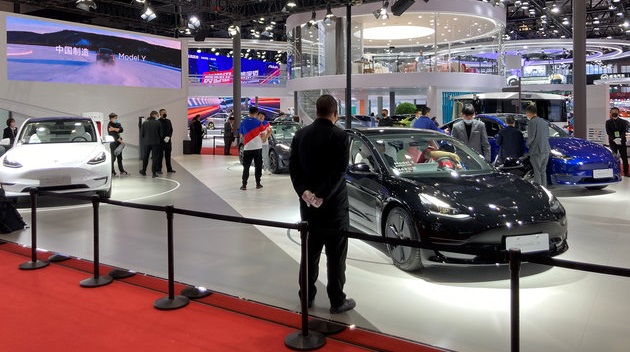
The U.S. government has notified electric vehicle tax rules that will reduce or remove tax credits on some zero-emission models but grant buyers another two weeks before the new requirements take effect.
According to Reuters, the Treasury Department rules are aimed at weaning the United States off dependence on China for EV battery supply chains and are part of President Joe Biden’s effort to make 50% of U.S. new vehicle sales by 2030 EVs or plug-in hybrids.
The government will publish by April 18 a revised list of qualifying models and tax credit amounts.
Alliance for Automotive Innovation CEO John Bozzella said in a statement few EVs on the market will qualify for the full $7,500 credit after April 17. He noted the requirement for EVs be assembled in North America to qualify for any credit eliminated 70% of models.
“Some EVs will certainly qualify for a partial credit. Given the constraints of the legislation, Treasury’s done as well as it could to produce rules that meet the statute and reflect the current market,” Bozzella said.
The IRA requires 50% of the value of battery components to be produced or assembled in North America to qualify for a $3,750 credit and 40% of the value of critical minerals sourced from the United States or a free trade partner also for a $3,750 credit.
The electric vehicle (EV) market in the United States has been growing steadily in recent years, driven by a combination of government incentives, consumer demand, and technological advancements. While the US is still lagging behind China in terms of total EV production, it has seen significant growth in the sector.
In addition to government support, technological advancements have also played a significant role in the growth of the US EV market. Battery technology has improved dramatically in recent years, allowing for longer driving ranges and faster charging times, while automakers have invested heavily in EV production and R&D.
Tesla, a US-based EV manufacturer, is currently the leading producer of EVs in the country. The company’s Model 3 and Model Y vehicles are among the best-selling EVs in the US, and it has plans to expand production with new factories in Texas and Germany.
Other major automakers have also made significant investments in the US EV market. General Motors, for example, has pledged to phase out gasoline-powered vehicles by 2035 and invest $35 billion in EVs and autonomous vehicles by 2025. Ford, meanwhile, has announced plans to spend $22 billion on EVs and self-driving cars through 2025.
Despite this growth, the US still faces some challenges in fully transitioning to EVs. Infrastructure, particularly charging stations, remains a concern, and the country’s reliance on fossil fuels for electricity generation means that EVs are not always emissions-free. Nevertheless, with continued government support and technological advancements, the US is expected to remain a major player in the global EV market.
Huawei partners Chery, BAIC,Anhui Jianghuai to produce Aito electric vehicles
Indus Motor Company to invest $100mn in Hybrid Electric Vehicles